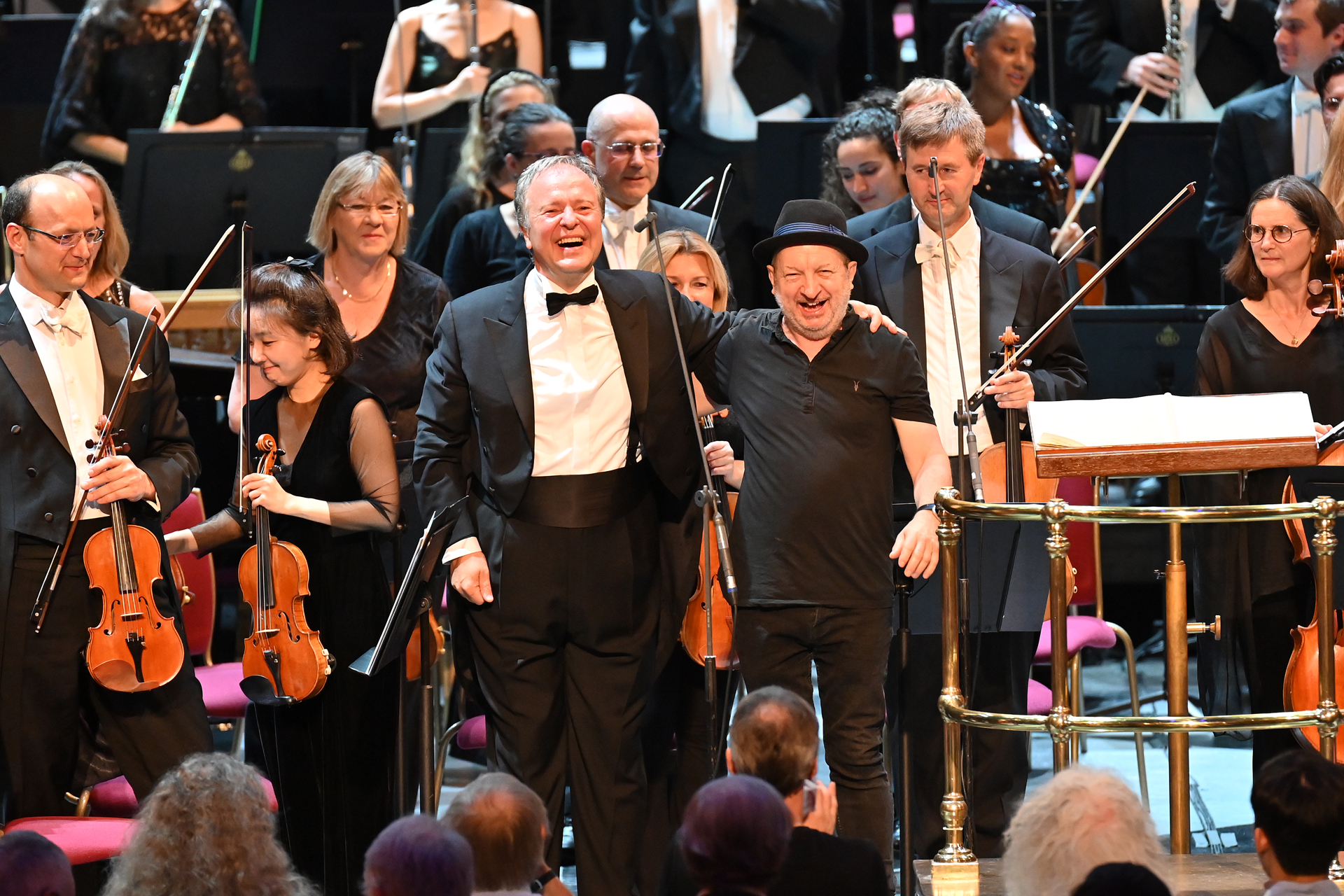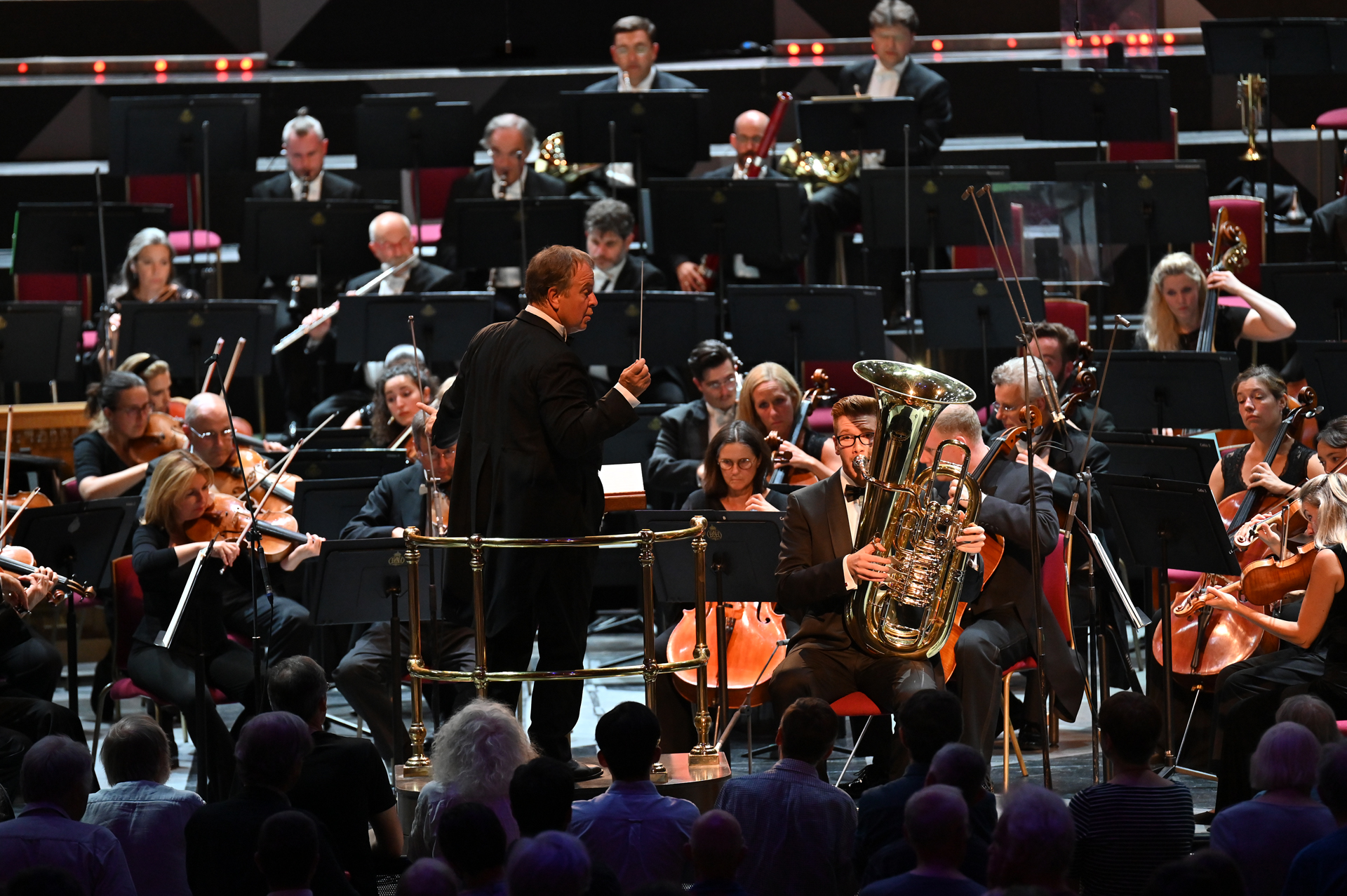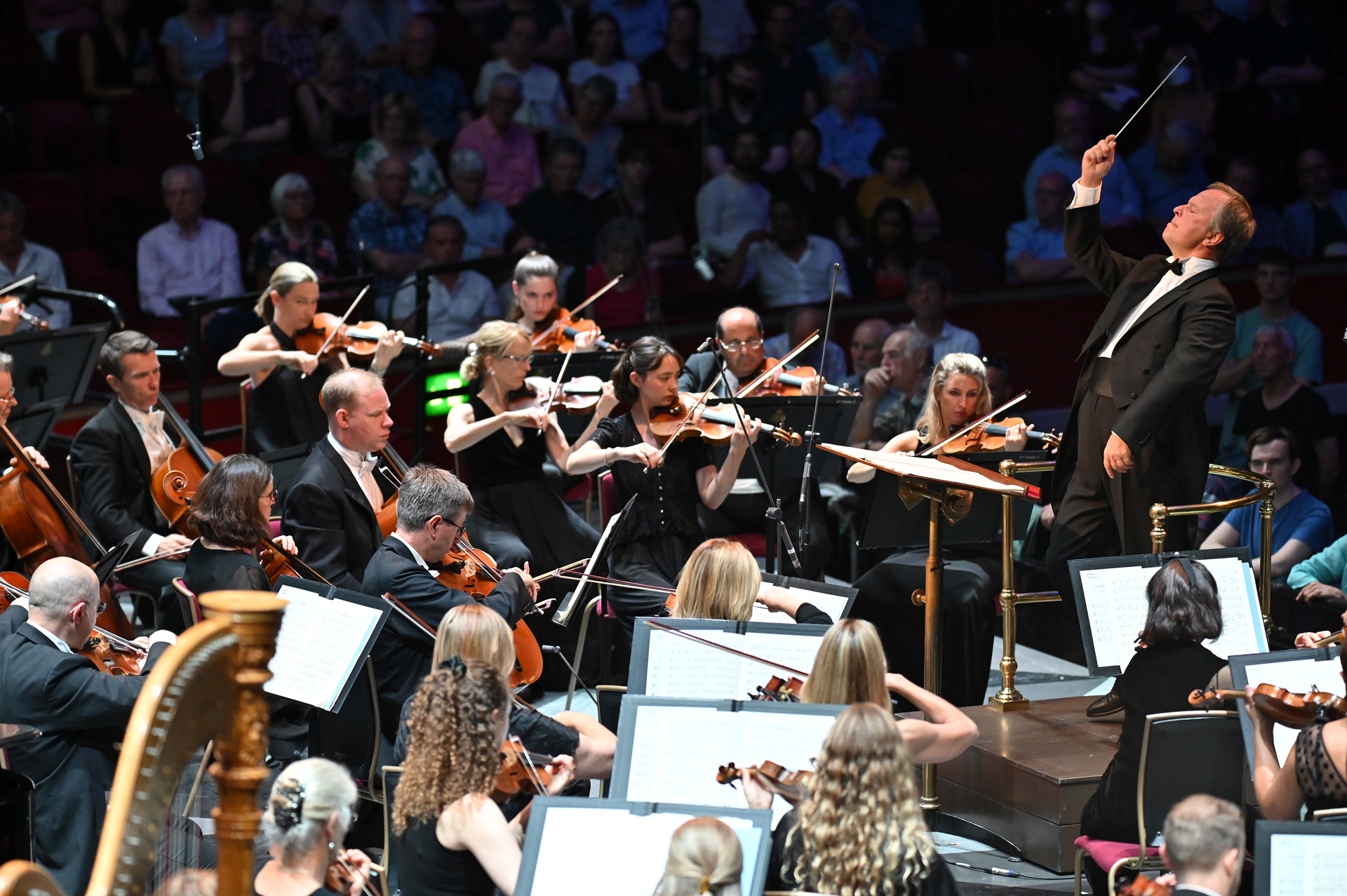Prom 39, Hartwig, BBCSO, Oramo review - bright and breezy followed by a curate's egg | reviews, news & interviews
Prom 39, Hartwig, BBCSO, Oramo review - bright and breezy followed by a curate's egg
Prom 39, Hartwig, BBCSO, Oramo review - bright and breezy followed by a curate's egg
Turnage and Vaughan Williams scintillate, but the soul of Elgar remains out of reach
Two quirky concertos – one for orchestra, though it might also be called a sinfonietta – and a big symphony: best of British but, more important, international and world class. Sakari Oramo and the BBC Symphony Orchestra sounded glorious throughout from my seat – at 7 of the Albert Hall clock if the conductor is at 12 – but the eccentric charms of Mark-Anthony Turnage and Vaughan Williams fared better than the elusive soul of Elgar.
There’s no doubt about it, Turnage’s Time Flies is a brilliant opener for any concert (and accomplished youth orchestras ought to give it a go). Co-commissioned by the BBC, Tokyo Metropolitan Symphony Orchestra and NDR Elbphilharmonie Orchestra Hamburg, its three movements, supposedly reflecting on each city, might have been a bit shorter if time wasn’t in this case money. But the burbling outer movements have their own character – a fine melody along the lines of “Girls and Boys Come Out to Play” for London, keeping its tuneful head through ingenious orchestration and key-changes, and jazzy antics that might seem more suitable for New York than Tokyo in the finale. 
Consummate entertainment continued with Vaughan Williams’ Tuba Concerto, composed in 1954 for Philip Catalinet (a recording with Barbirolli exists), though it sounds, in the outer movements, closer to the tumbling 1930s worlds of the Fourth Symphony and the ballet Job. But with humour and beauty: hearts were instantly won by the gorgeous sound Dresden Staatskapelle principal and soloist Constantin Hartwig makes at the top of the register. Reception was ecstatic, though what a shame the Arena was only half full, and hardly anyone was sitting in the seats near the top of the hall. 
The BBCSO were on gleaming form, and remained so in Elgar’s First Symphony. Promise of the ideal introspection came in the first ppp of the wonderful Nobilmente e semplice melody which dominates the work, and the dreamy seven-part string passage which brackets the first-movement development had ideal flexibility, light of touch. But why did Oramo slow down for the Scherzo’s river-music trio? It still glistened, but it didn’t soar. And what should be a magical transition turning the main march scurry into the Adagio theme felt much too laboured. 
rating
Explore topics
Share this article
Add comment
The future of Arts Journalism
You can stop theartsdesk.com closing!
We urgently need financing to survive. Our fundraising drive has thus far raised £49,000 but we need to reach £100,000 or we will be forced to close. Please contribute here: https://gofund.me/c3f6033d
And if you can forward this information to anyone who might assist, we’d be grateful.

Subscribe to theartsdesk.com
Thank you for continuing to read our work on theartsdesk.com. For unlimited access to every article in its entirety, including our archive of more than 15,000 pieces, we're asking for £5 per month or £40 per year. We feel it's a very good deal, and hope you do too.
To take a subscription now simply click here.
And if you're looking for that extra gift for a friend or family member, why not treat them to a theartsdesk.com gift subscription?
more Classical music
 Bizet in 150th anniversary year: rich and rare French offerings from Palazzetto Bru Zane
Specialists in French romantic music unveil a treasure trove both live and on disc
Bizet in 150th anniversary year: rich and rare French offerings from Palazzetto Bru Zane
Specialists in French romantic music unveil a treasure trove both live and on disc
 Scottish Chamber Orchestra, Ibragimova, Queen’s Hall, Edinburgh review - rarities, novelties and drumrolls
A pity the SCO didn't pick a better showcase for a shining guest artist
Scottish Chamber Orchestra, Ibragimova, Queen’s Hall, Edinburgh review - rarities, novelties and drumrolls
A pity the SCO didn't pick a better showcase for a shining guest artist
 Kilsby, Parkes, Sinfonia of London, Wilson, Barbican review - string things zing and sing in expert hands
British masterpieces for strings plus other-worldly tenor and horn - and a muscular rarity
Kilsby, Parkes, Sinfonia of London, Wilson, Barbican review - string things zing and sing in expert hands
British masterpieces for strings plus other-worldly tenor and horn - and a muscular rarity
 From Historical to Hip-Hop, Classically Black Music Festival, Kings Place review - a cluster of impressive stars for the future
From quasi-Mozartian elegance to the gritty humour of a kitchen inspection
From Historical to Hip-Hop, Classically Black Music Festival, Kings Place review - a cluster of impressive stars for the future
From quasi-Mozartian elegance to the gritty humour of a kitchen inspection
 Shibe, LSO, Adès, Barbican review - gaudy and glorious new music alongside serene Sibelius
Adès’s passion makes persuasive case for the music he loves, both new and old
Shibe, LSO, Adès, Barbican review - gaudy and glorious new music alongside serene Sibelius
Adès’s passion makes persuasive case for the music he loves, both new and old
 Anja Mittermüller, Richard Fu, Wigmore Hall review - a glorious hall debut
The Austrian mezzo shines - at the age of 22
Anja Mittermüller, Richard Fu, Wigmore Hall review - a glorious hall debut
The Austrian mezzo shines - at the age of 22
 First Person: clarinettist Oliver Pashley on the new horizons of The Hermes Experiment's latest album
Compositions by members of this unusual quartet feature for the first time
First Person: clarinettist Oliver Pashley on the new horizons of The Hermes Experiment's latest album
Compositions by members of this unusual quartet feature for the first time
 Gesualdo Passione, Les Arts Florissants, Amala Dior Company, Barbican review - inspired collaboration excavates the music's humanity
At times it was like watching an anarchic religious procession
Gesualdo Passione, Les Arts Florissants, Amala Dior Company, Barbican review - inspired collaboration excavates the music's humanity
At times it was like watching an anarchic religious procession
 Classical CDs: Camels, concrete and cabaret
An influential American composer's 90th birthday box, plus British piano concertos and a father-and-son duo
Classical CDs: Camels, concrete and cabaret
An influential American composer's 90th birthday box, plus British piano concertos and a father-and-son duo
 Cockerham, Manchester Camerata, Sheen, Martin Harris Centre, Manchester review - re-enacting the dawn of modernism
Two UK premieres added to three miniatures from a seminal event of January 1914
Cockerham, Manchester Camerata, Sheen, Martin Harris Centre, Manchester review - re-enacting the dawn of modernism
Two UK premieres added to three miniatures from a seminal event of January 1914
 Kempf, Brno Philharmonic, Davies, Bridgewater Hall, Manchester review - European tradition meets American jazz
Bouncing Czechs enjoy their Gershwin and Brubeck alongside Janáček and Dvořák
Kempf, Brno Philharmonic, Davies, Bridgewater Hall, Manchester review - European tradition meets American jazz
Bouncing Czechs enjoy their Gershwin and Brubeck alongside Janáček and Dvořák
 Solomon, OAE, Butt, QEH review - daft Biblical whitewashing with great choruses
Even a top soprano and mezzo can’t make this Handel paean wholly convincing
Solomon, OAE, Butt, QEH review - daft Biblical whitewashing with great choruses
Even a top soprano and mezzo can’t make this Handel paean wholly convincing

Comments
I have to disagree with you
With you Mr Nice. Having been